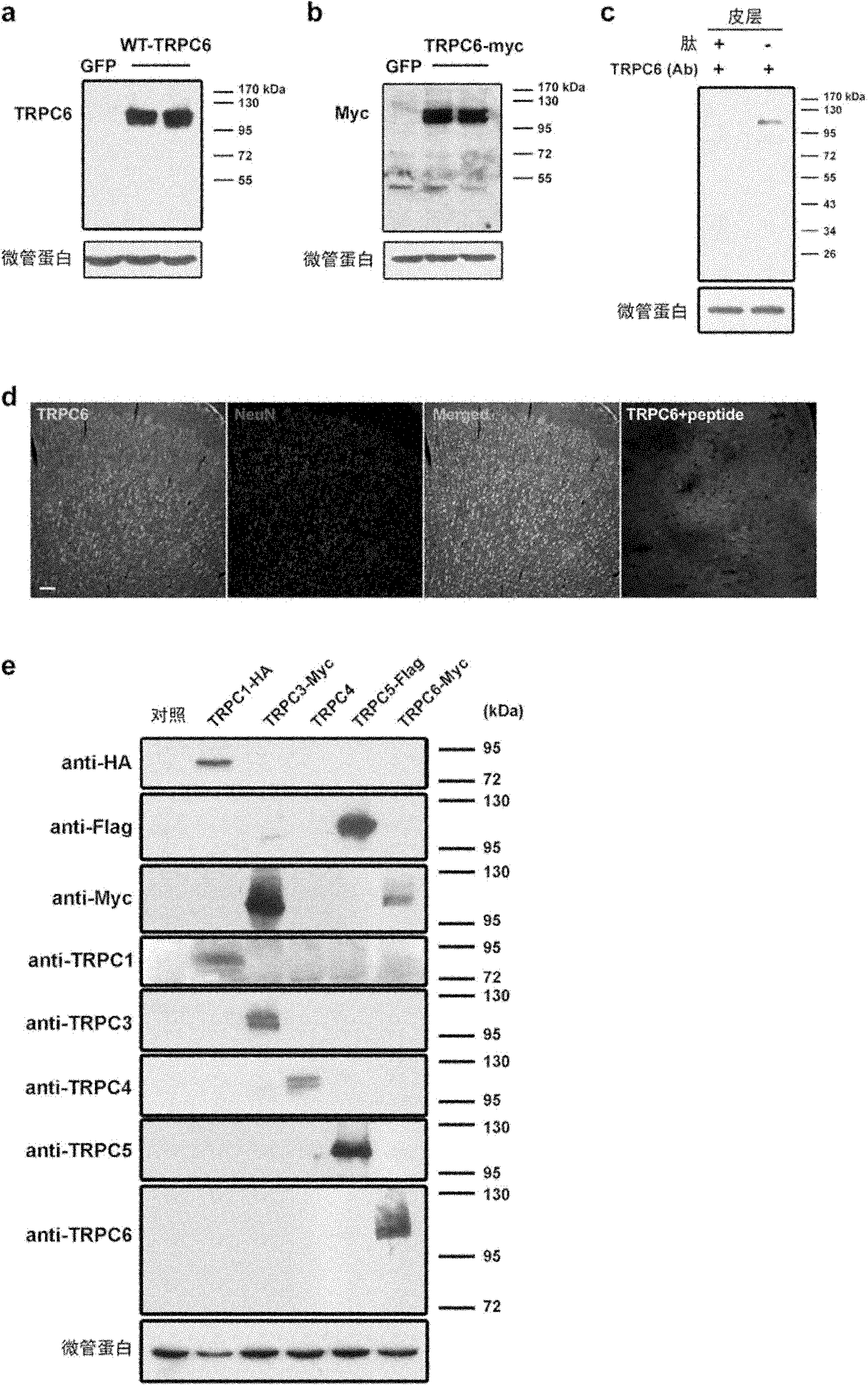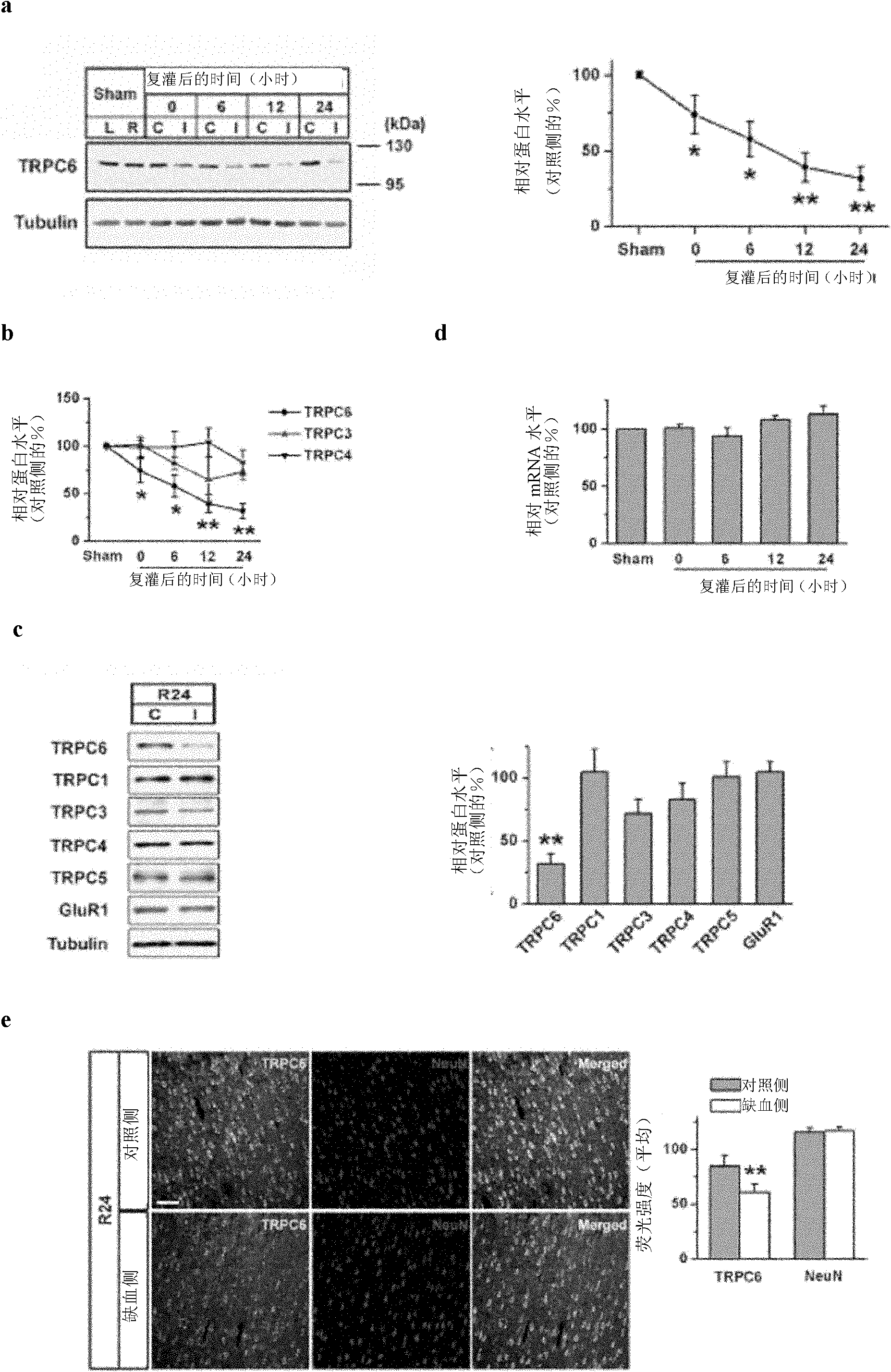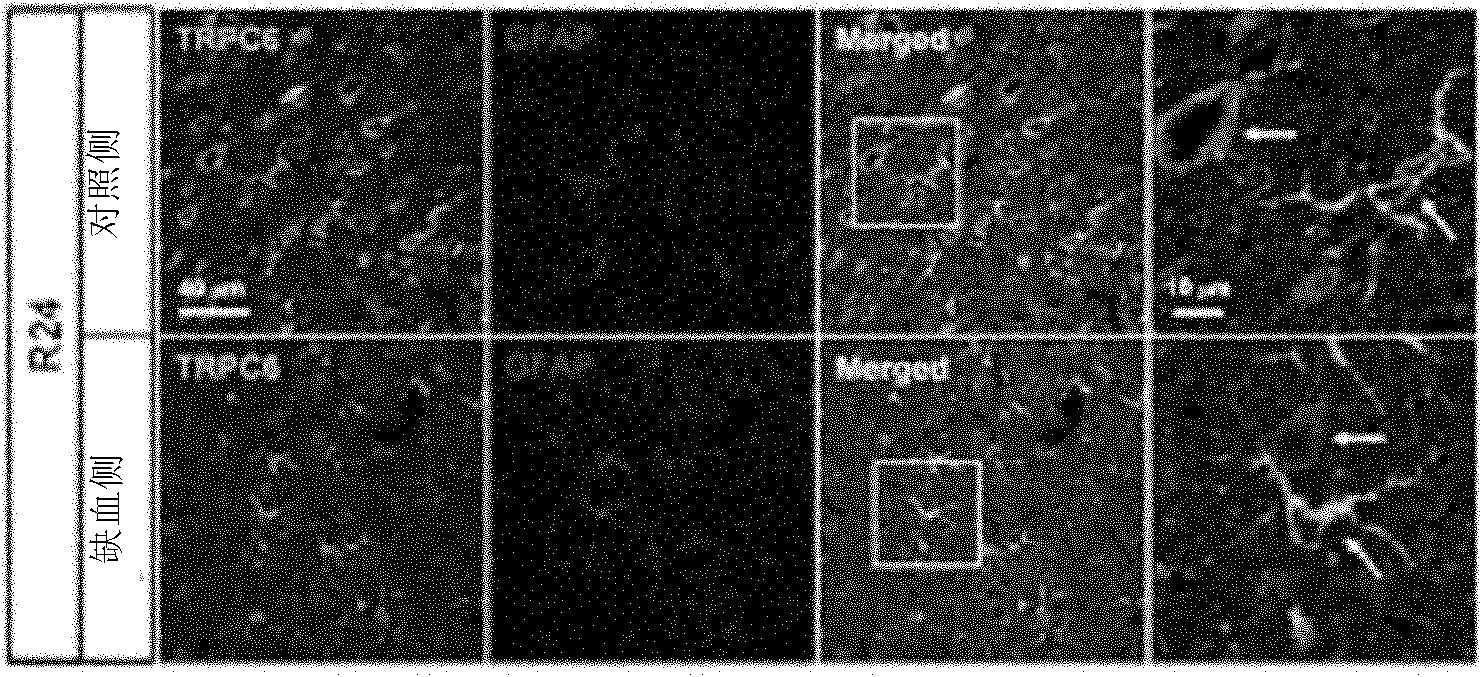Target spot and medicine for treating cerebral injury
A kind of ischemic brain injury, material technology, applied in the treatment of brain injury, the TRPC6 target field for the treatment of brain injury, can solve the problems associated with cerebral hemorrhage
- Summary
- Abstract
- Description
- Claims
- Application Information
AI Technical Summary
Problems solved by technology
Method used
Image
Examples
specific Embodiment
[0156] 1. Experimental materials and methods
[0157] 1.1 Animal model of cerebral ischemia
[0158] Rats (male SD rats, body weight 250-280 g) or mice (male C57BL6 strain mice, body weight 25-30 g) were anesthetized with 10% chloral hydrate, then the skin of the neck was incised, and the cervical Artery (CCA) and external carotid artery (ECA), ligate at both ends of the ECA and then cut a small opening, insert the tie thread through it, tie the tie thread and blood vessel, release the ligation thread near the CCA end, and push the tie thread into the CCA And push the ICA up until there is a slight resistance. In the experiment, after 2 hours of ischemia in rats and 3 hours in mice, the suture was withdrawn and perfusion was resumed (reperfusion). After reperfusion at different times, the mouse brain was taken out and sliced at intervals of 2 mm (rat) or 1 mm (mice), and then the brain slices were incubated in 2% 2,3,5-triphenyltetrazolium chloride (TTC, in 0.9% saline) t...
PUM
 Login to View More
Login to View More Abstract
Description
Claims
Application Information
 Login to View More
Login to View More - R&D
- Intellectual Property
- Life Sciences
- Materials
- Tech Scout
- Unparalleled Data Quality
- Higher Quality Content
- 60% Fewer Hallucinations
Browse by: Latest US Patents, China's latest patents, Technical Efficacy Thesaurus, Application Domain, Technology Topic, Popular Technical Reports.
© 2025 PatSnap. All rights reserved.Legal|Privacy policy|Modern Slavery Act Transparency Statement|Sitemap|About US| Contact US: help@patsnap.com



